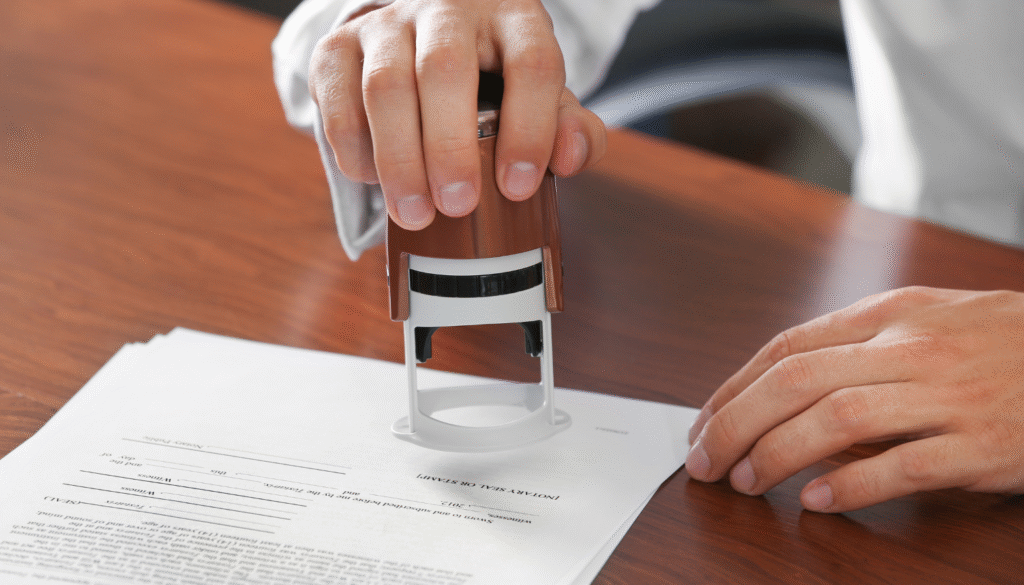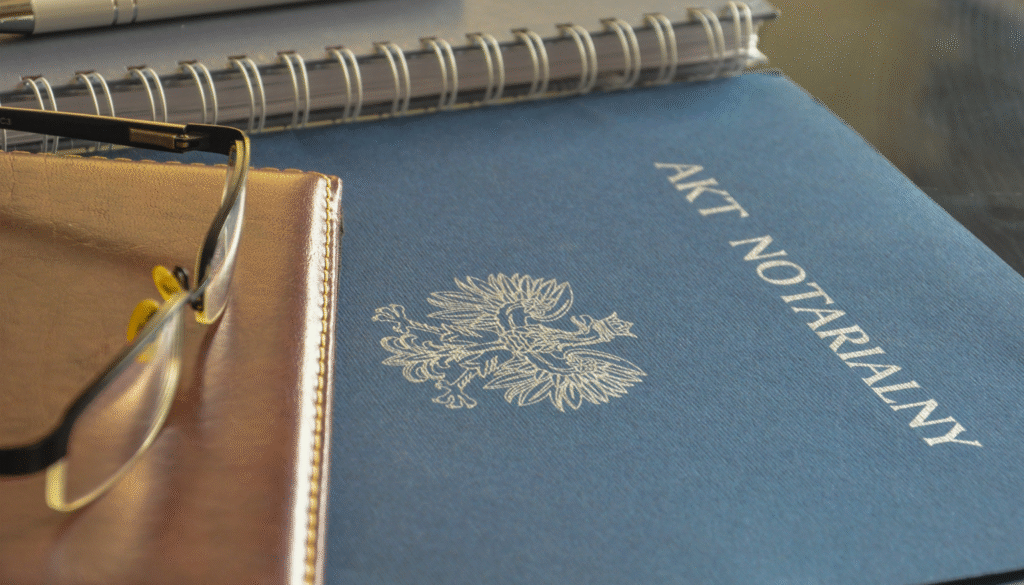A notary meaning, also referred to as a notary public, is an authorized individual appointed by the government to serve as an impartial witness to the signing of important documents. The primary role of a notary is to verify the identity of signatories, ensure that they are signing willingly, and confirm that the document is…
A notary meaning, also referred to as a notary public, is an authorized individual appointed by the government to serve as an impartial witness to the signing of important documents. The primary role of a notary is to verify the identity of signatories, ensure that they are signing willingly, and confirm that the document is authentic. Notaries play an essential role in preventing fraud, protecting parties involved in agreements, and ensuring legal compliance. Understanding the meaning of notary and the various functions they perform is crucial, especially in legal and business transactions where authenticity and trust are vital.
What is Notary Meaning?
The meaning of notary extends beyond simply witnessing signatures. A notary is a legally appointed official responsible for administering oaths, certifying documents, and verifying the authenticity of agreements. In many countries, notaries also hold the authority to perform additional legal tasks, such as preparing affidavits, certifying copies of original documents, and witnessing the signing of contracts, deeds, and other important papers. The primary objective of a notary is to ensure that all documents signed are genuine and free from coercion, misrepresentation, or fraud.
Historical Background of Notary Services
The concept of notaries dates back thousands of years, with origins in ancient Egypt and Rome. In Roman times, notaries were trusted individuals who documented important transactions, treaties, and contracts. Their primary role was to record events accurately and provide official, recognized copies of agreements. Over the centuries, the role of notaries expanded and evolved, and today, they are vital legal professionals in many jurisdictions. In modern times, the notary public’s work remains critical in safeguarding the validity and legality of documents used for various purposes, including real estate deals, business agreements, and legal declarations.
Key Responsibilities of a Notary
The responsibilities of a notary are diverse and depend on the legal framework of the country in which they operate. Some of the core duties include:
- Witnessing and Authenticating Signatures: A notary verifies the identity of individuals signing a document to prevent fraud and ensure authenticity.
- Administering Oaths and Affirmations: Notaries have the authority to administer oaths and affirmations required in affidavits, legal statements, and declarations.
- Certifying True Copies of Documents: In cases where a copy of an original document is needed, a notary can certify that the copy is a true and accurate representation of the original.
- Attesting Legal Documents: Notaries often attest to contracts, deeds, and agreements, making them legally valid and enforceable.
- Deterring Fraud: By confirming the identity and willingness of signatories, notaries serve as a safeguard against fraudulent activities.

Why Are Notary Services Important?
Notary services are crucial in legal, personal, and commercial transactions. Without a notary’s verification, the authenticity of certain documents could be challenged, which might lead to disputes, legal complications, or even financial losses. By having a notary involved, both parties can trust that the agreement or document is valid and binding. Moreover, notaries ensure that all signatories are acting freely, without undue influence or coercion, which further strengthens the reliability of the document.
Types of Documents That Require Notarization
A wide range of documents often require notarization, including but not limited to:
- Real estate transactions (sale deeds, property transfers)
- Power of attorney documents
- Loan agreements and financial contracts
- Affidavits and sworn statements
- Business contracts and partnership agreements
- Wills, trusts, and estate documents
- Consent letters for minors traveling abroad
In many cases, government agencies, courts, and banks will not accept a document unless it is notarized. This makes the role of a notary public essential in both everyday and high-value transactions.
How Does a Notary Verify Identity?
One of the most significant roles of a notary is identity verification. Notaries typically require individuals to present valid identification documents, such as a passport, driver’s license, or national ID card, before they can notarize a document. This process ensures that the person signing is indeed who they claim to be, reducing the risk of identity theft or fraud. In some jurisdictions, notaries may also use biometric methods or digital verification tools to confirm identities, especially for online notarization services.
Digital and Online Notary Services
With advancements in technology, online notarization has become increasingly popular. Digital notary services allow individuals to have their documents notarized remotely using video conferencing and secure digital platforms. Online notary services are particularly useful for people who are unable to visit a notary office in person due to geographical or time constraints. While traditional notaries still play a vital role, digital notarization offers convenience and flexibility in a fast-paced world.
Notary Services in Dubai
Dubai, being a global business hub, has a high demand for reliable notary services. The government of Dubai offers both public and private notary services, ensuring that individuals and businesses can get their documents notarized efficiently. From attesting property deals to certifying corporate documents, notaries in Dubai are well-versed in handling both local and international transactions. If you are looking for professional notary services in Dubai, you can visit Notary Services Dubai to learn more about the services available and how they can assist you with your documentation needs.
How to Find a Trusted Notary?
When choosing a notary, it is essential to ensure they are licensed and authorized by the relevant government authorities. A professional notary will always follow legal guidelines, maintain impartiality, and ensure that the notarization process is conducted with utmost transparency. Additionally, you should consider factors such as location, availability of online services, and customer reviews to determine if the notary is reputable.
The Difference Between a Notary Public and a Lawyer
While both notaries and lawyers deal with legal documents, their roles are different. A lawyer provides legal advice, represents clients in court, and drafts legal documents. On the other hand, a notary acts as an impartial witness who verifies the authenticity of documents and ensures that the parties involved are acting willingly. In some countries, lawyers may also function as notaries, but in many jurisdictions, the two roles are separate.

Conclusion
The meaning of notary goes beyond witnessing signatures; it is about ensuring the authenticity, legality, and integrity of important documents. Notaries play a vital role in protecting individuals and businesses from fraud, ensuring trust in legal transactions, and upholding the validity of agreements. Whether you need to notarize real estate documents, certify copies, or authenticate business contracts, a notary public is essential. In Dubai and other global business centers, professional notary services ensure smooth and legally compliant transactions. To explore reliable and efficient notary solutions, you can visit Notary Services Dubai and find expert guidance for all your notarization needs.





